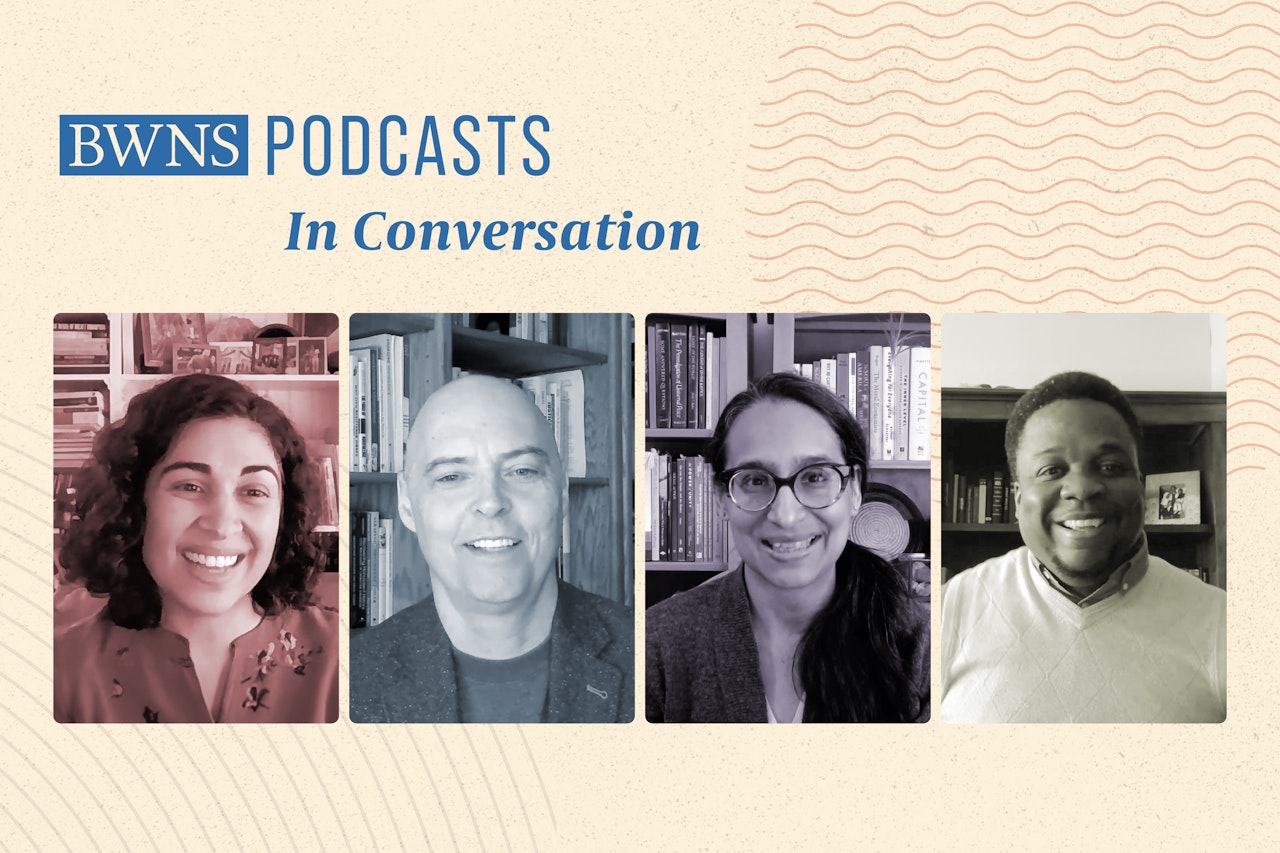
InConversation
Podcast explores collective inquiry through Bahá’í studies
Podcast explores efforts of the Association for Bahá’í Studies to enrich the intellectual life of communities through consultative approaches to academic inquiry.

Podcast explores efforts of the Association for Bahá’í Studies to enrich the intellectual life of communities through consultative approaches to academic inquiry.
BAHÁ’Í WORLD CENTRE — This podcast episode from the Bahá’í World News Service explores the initiatives of the Association for Bahá’í Studies (ABS) in North America that aim to enrich the intellectual life of communities.
Selvi Adaikkallam Zabihi, Michael Karlberg, Malik Nash, and Negin Toosi join the News Service from the United States to discuss the ABS’s unique approach to inquiry within the sciences and humanities.
Dr. Karlberg, a member of the Association’s committee for collaborative initiatives, describes how the ABS “aims to foster processes of learning about how to apply insights from the Bahá’í teachings and Bahá’í experience to the betterment of humanity.”
He explains that one of the principles essential to the work of the ABS is the harmony of science and religion. “Part of what this involves is learning how the application of spiritual principles, like the principles of oneness and justice, can be relevant across a wide range of professional and academic contexts,” says Dr. Karlberg.
Ms. Adaikkalam Zabihi, another member of the Association’s committee for collaborative initiatives, reflects on the impact of these principles on perception and social structures: “The way we think about the world and how we think it works... shape the structures of society and... our behavior.”
She highlights the intricate relationship between thought and social reality, stating: “We will not be able to change structures... if we’re not able to change the way we perceive and understand reality.”
It is here that the role of consultation emerges as a pivotal mechanism for gaining a more profound view of social reality within professional and academic settings, says Dr. Toosi.
“No one person or group can claim to understand all of reality,” she says, adding that through consultation “we can understand the phenomenon that we’re trying to study a little bit more.”
Mr. Nash adds that consultation can help address some of the challenges within traditional methodologies that assert a narrow interpretation of social issues.
“This can lead to the very inequities and structural problems societies are striving to overcome,” he notes. “What the Association for Bahá’í Studies is trying to foster and learn more about is the collective investigation of reality.”